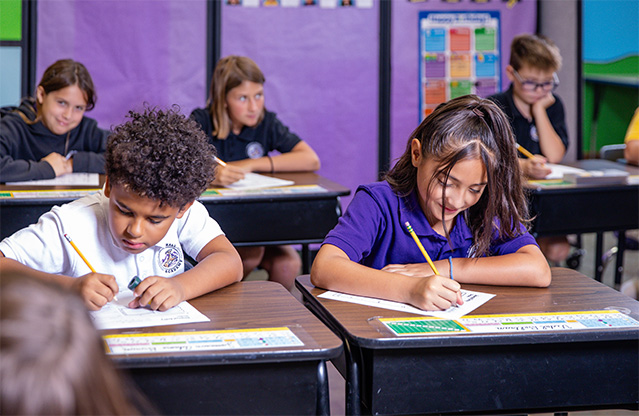Young children experience the world in a series of new moments. Every sound, color, and interaction adds to their understanding of how life works. Amid this constant discovery, structure plays a vital role in shaping how children respond to the world around them. A consistent daily rhythm brings comfort and clarity, helping young learners feel safe, confident, and ready to grow. With a dependable flow to their day, children begin to understand time, expectations, and the natural order of events—all essential for healthy emotional and mental development.
Routine also helps reduce stress and confusion in the classroom. Children who know what to expect are likelier to engage, cooperate, and feel at ease in group settings. From learning to share during playtime to developing the habit of cleaning up after themselves, a regular pattern of activities supports positive behaviors and nurtures independence. For early childhood educators and families alike, a thoughtful routine is key to helping children thrive in school and beyond.
At Candil Hall Academy, consistency builds confidence. Our programs are thoughtfully designed to promote structure while encouraging creativity and exploration. With caring educators and a well-balanced curriculum, we provide a nurturing environment where children feel secure and engaged throughout the day. We focus on helping each child develop academically, socially, and emotionally through proven strategies and a consistent daily rhythm.
Why Routine Matters in Early Childhood Education
Here are some of the key ways routine supports early learners:
1. Builds Emotional Security
When children know what comes next, they feel more in control. Familiar routines reduce anxiety and create a sense of stability. This is especially important in a school setting, where new experiences sometimes feel overwhelming. A dependable structure helps children trust their environment and the adults who care for them.
2. Encourages Independence
Simple routines, such as putting away a backpack or washing hands before snack time, teach children how to manage tasks independently. Repeating these steps daily allows young learners to take pride in completing them without help. As these actions become second nature, children gain confidence in their abilities.
3. Supports Cognitive Development
It also helps improve memory, sequencing, and problem-solving. Knowing the order of daily activities allows children to grasp concepts like time and cause and effect. This mental structure gives them the tools to process new information and develop critical thinking skills in a supportive environment.
4. Fosters Social Skills
Group routines such as circle time, clean-up time, or shared meals offer social interaction opportunities. Children learn how to cooperate, take turns, and respect boundaries. These shared experiences help form bonds and establish group norms, creating a sense of community in the classroom.
5. Promotes Better Transitions
Children often struggle with change. A consistent routine helps ease transitions between activities by providing a sense of rhythm. When children can predict what’scoming next, moving from one task to another becomes smoother and less stressful for everyone involved.
6. Reinforces Positive Behavior
Children are more likely to stay on track when routines include reminders and expectations. For example, starting each day with a greeting and morning song sets a positive tone. Following this with structured play or learning centers encourages focus. Repeated patterns of behavior become habits that support growth and self-discipline.
7. Improves Attention Span
Children who follow routines are often better able to stay focused. Because they are not distracted by uncertainty, they can direct their energy toward the activity. A clear structure helps children give their full attention, if its listening to a story, solving a puzzle, or painting at the art table
8. Creates A Sense Of Accomplishment
There’s satisfaction in finishing a task and knowing what to expect next. Routines help children see progress and celebrate small wins. Completing a full school day with clear milestones gives children a sense of pride and encourages them to look forward to the next day.
Quality Education And The Power Of Routine
At Candil Hall Academy, we understand the value of routine in helping children feel confident, secure, and eager to learn. Our educators follow thoughtfully planned daily structures that perfectly balance predictability and flexibility. Every part of the day is an opportunity to help children grow in understanding, independence, and emotional strength.
Placing children in a safe, structured environment allows them to explore their interests and build meaningful relationships. Children who know what to expect are better prepared to engage, participate, and enjoy learning. A solid routine helps create lifelong learners who are curious, confident, and ready to take on the next challenge.
For more information on our academic programs, call Candil Hall Academy at 702.656.3370. Alternatively, you can contact us via this Online Form.

